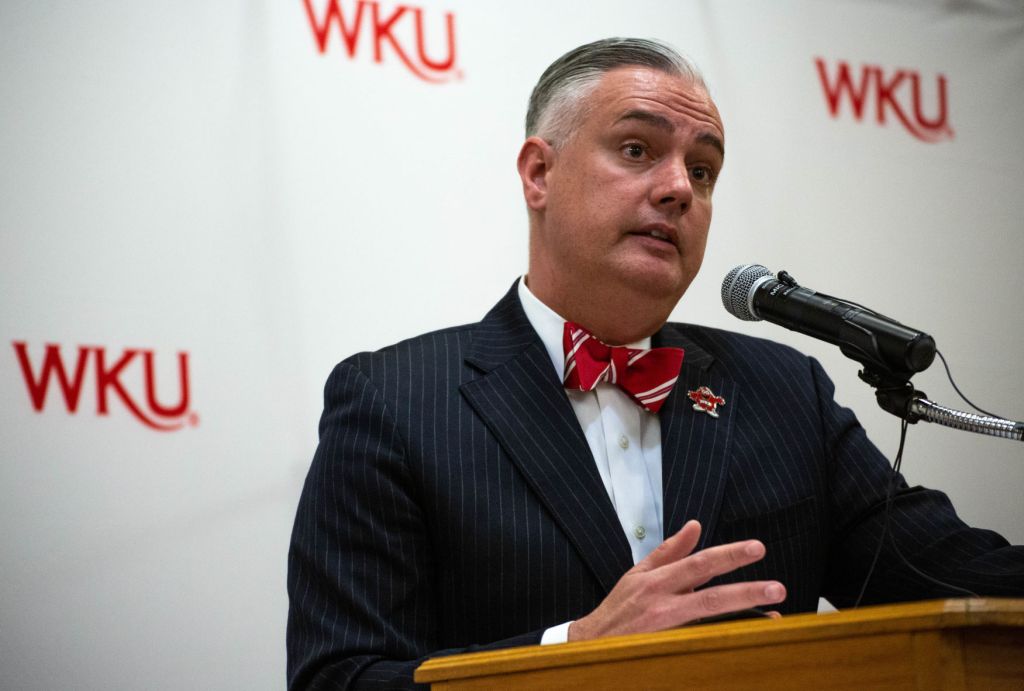WKU president announces task force to examine campus namesakes
Published 4:33 pm Monday, August 17, 2020

- Timothy Caboni
Spurred by high-profile killings of Black Americans by police and the nationwide racial reckoning in their wake, Western Kentucky University President Timothy Caboni announced the creation of a task force Monday that will examine “problematic” names on campus buildings or academic units.
Caboni’s announcement follows conversations on campus about whether the Potter College of Arts and Letters and the Ogden College of Science and Engineering – whose namesakes held people as slaves – should be renamed.
“In many ways, the names we carve into our buildings and attach to our academic units should define for members of our community the best of what we have been, what we are and what we aspire to be,” Caboni said, speaking during his Convocation address, which kicks of the academic year for WKU faculty and staff.
“To this end, I have established a task force to conduct a thorough examination of the history of WKU’s namings; explore options for how we might address those that might be problematic; and make recommendations for university leadership to consider,” Caboni said.
“This will require difficult and challenging conversations, but the effort is vital as we consider the ways in which we welcome and support every member of the WKU community,” he said.
Caboni did not detail who would be on the task force in Monday’s virtual address.
WKU Historian David Lee has conducted research into the namesakes of Potter College and Ogden College – Pleasant J. Potter and Robert Ogden, respectively.
“They definitely both were slaveholders and came from slave-holding families,” Lee said of the two men.
After originally relocating to Kentucky from Virginia in 1796, Ogden married a wealthy widow and inherited money he used to invest in land, horses and enslaved people. By 1860, Ogden held 38 people as slaves, Lee said.
Later, after his death in 1873, Ogden left money for the establishment of a college in his name. The Ogden College merged with WKU in 1927, and its trustees continue to lease WKU land, Lee said.
Born in 1820, Pleasant J. Potter’s father owned enslaved people, and Potter owned others throughout his life, Lee said. Potter later established a bank and became wealthy.
In 1889, a group sought his help with starting a school for young women – the Pleasant J. Potter College for Young Ladies. The private school carried his name after Potter made a significant contribution to its founding, but it’s unclear if the naming was a provision of his gift or done in honor of it, Lee said. The school stood near where Cherry Hall now stands. After it went bankrupt, it was bought out by Western Kentucky State Normal School, the forerunner for WKU.
Potter Hall’s namesake is J. Whit Potter, not Pleasant J. Potter. J. Whit Potter was born after the Civil War and did not own people as slaves, according to WKU spokesman Bob Skipper.
– Follow education reporter Aaron Mudd on Twitter @BGDN_edbeat or visit bgdailynews.com.






